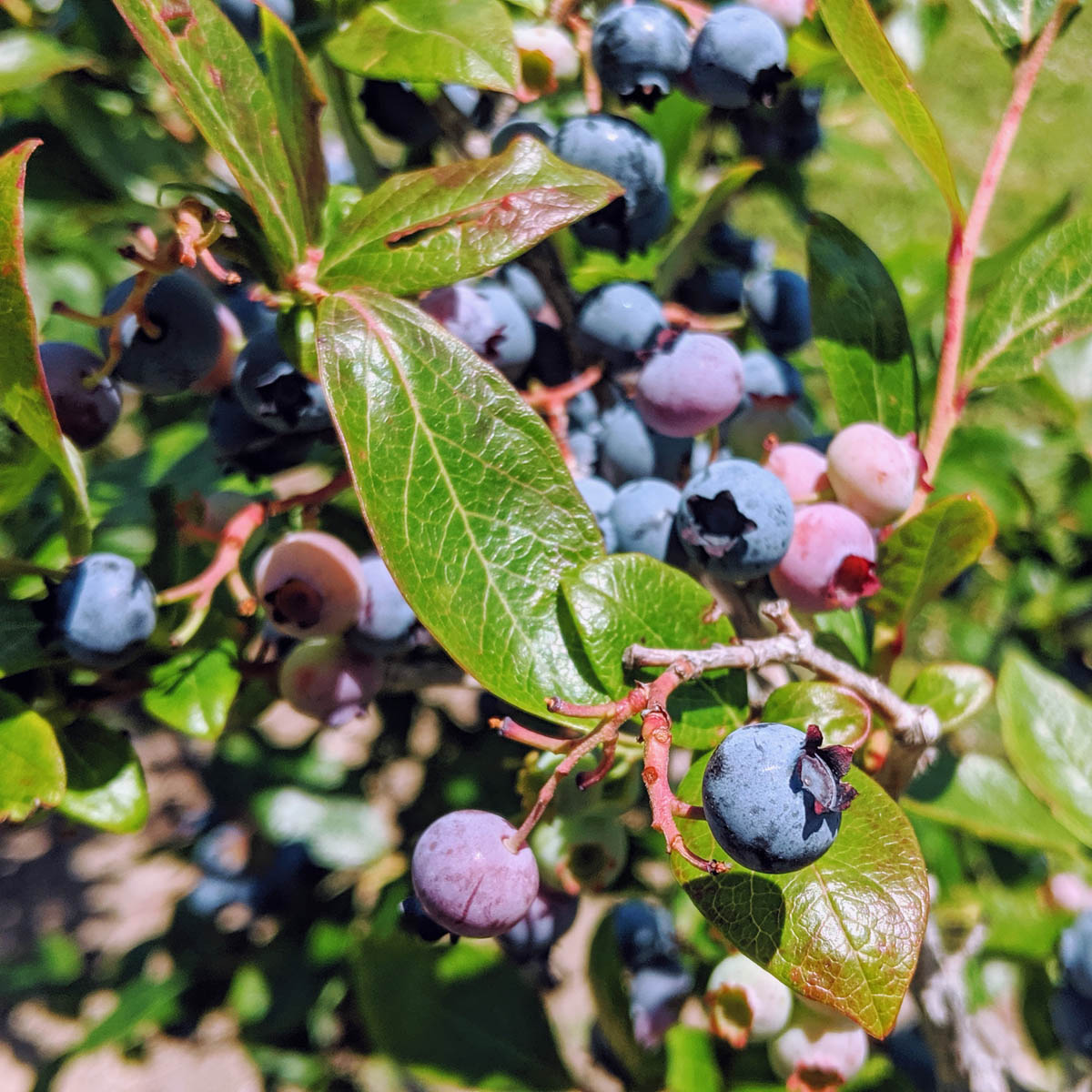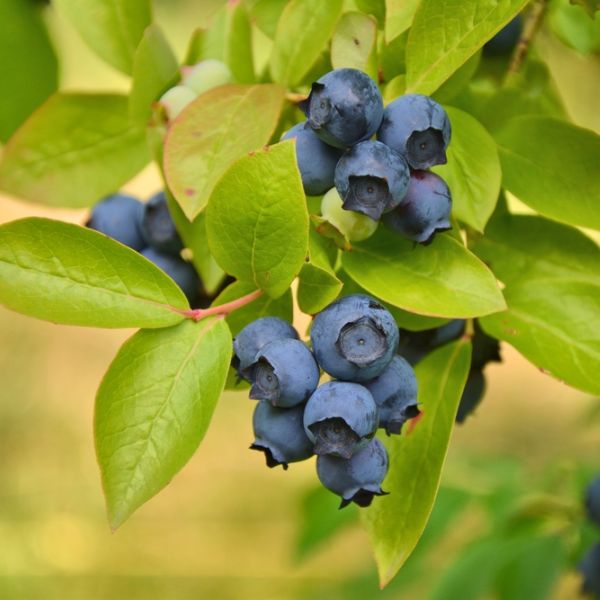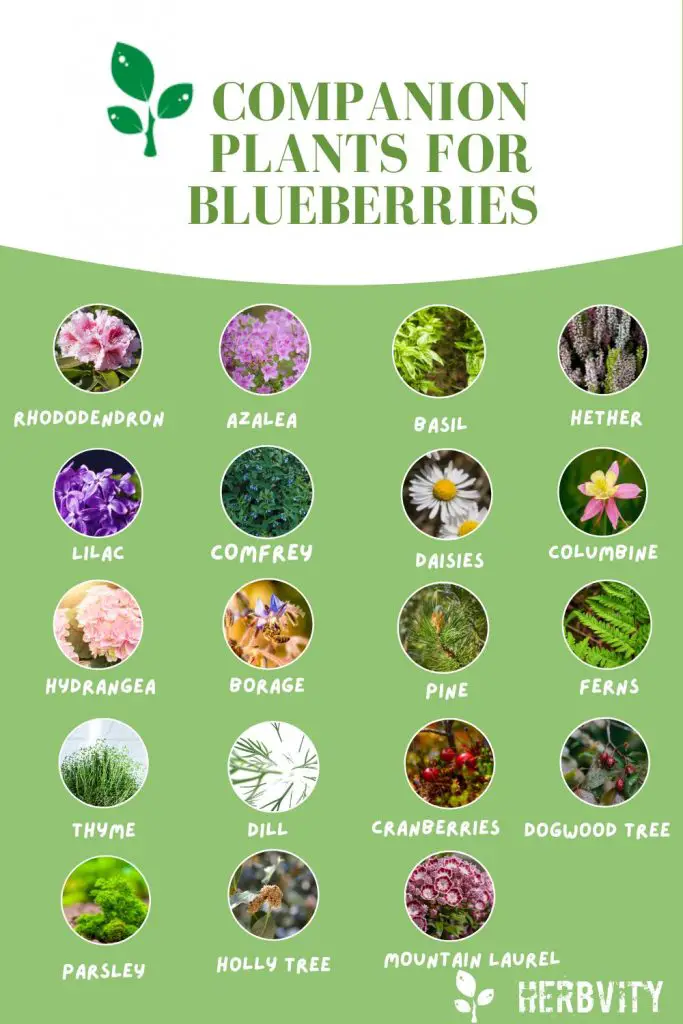Bad Companion Plants For Blueberries That Will Ruin Your Harvest
Title: Bad Companion Plants for Blueberries That Will Ruin Your Harvest
Introduction
Blueberries are a delicious and nutritious fruit that can be grown in many parts of the world. However, there are some plants that should not be planted near blueberries, as they can compete for nutrients, water, and sunlight, and can even attract pests and diseases.
In this blog post, we will discuss the bad companion plants for blueberries, and why you should avoid planting them near your blueberry bushes. We will also provide some tips on how to choose the right companion plants for your blueberries, so that you can enjoy a bountiful harvest of delicious berries.
Main Content
Nightshades
One group of plants that you should avoid planting near blueberries are the nightshades. This includes plants like tomatoes, potatoes, eggplants, and peppers. Nightshades prefer neutral or slightly alkaline soil, while blueberries need soil that is more acidic. As a result, planting blueberries near nightshades can lead to poor plant growth and poor yields.
Brassicas
Another group of plants that you should avoid planting near blueberries are the brassicas. Brassicas include kale, cabbage, brussels sprouts, and cauliflower. Brassicas have heavy nutrient requirements, which means that they will compete with blueberries for nutrients. In addition, brassicas have different pH requirements than blueberries, so they can actually make the soil less hospitable for blueberry growth.
Melons
Melons are also not good companion plants for blueberries. Melons require a lot of water, which can compete with blueberries for water resources. In addition, melons can attract pests and diseases that can also affect blueberries.
Salad Greens
Salad greens like lettuce are also not good companion plants for blueberries. Salad greens have shallow roots, which can compete with blueberries for water and nutrients. In addition, salad greens can attract pests and diseases that can also affect blueberries.
Other Plants to Avoid
In addition to the plants listed above, there are a few other plants that you should avoid planting near blueberries. These include:
- Asparagus
- Beans
- Carrots
- Garlic
- Onions
- Sage
Tips for Choosing Companion Plants for Blueberries
If you want to ensure that your blueberries thrive, it is important to choose the right companion plants. Here are a few tips for choosing companion plants for blueberries:
- Choose plants that have similar pH requirements.
- Choose plants that have different nutrient requirements.
- Choose plants that have different water requirements.
- Choose plants that are not susceptible to the same pests and diseases as blueberries.
- Choose plants that will help to attract pollinators.
Conclusion
By avoiding the bad companion plants for blueberries, you can help to ensure that your blueberry bushes thrive and produce a bountiful harvest. By following the tips above, you can choose the right companion plants to help your blueberries grow strong and healthy.
Blueberries are a delicious and versatile fruit that can be enjoyed fresh, frozen, or cooked. But did you know that there are some plants that should not be planted near blueberries? These so-called "bad companion plants" can compete with blueberries for nutrients, water, and sunlight, and can even attract pests and diseases.
Some of the most common bad companion plants for blueberries include:
- Nightshades: This family of plants includes tomatoes, peppers, eggplant, and potatoes. Nightshades prefer alkaline soil, which is not ideal for blueberries. They can also attract pests and diseases that can harm blueberry plants.
- Brassicas: This family of plants includes broccoli, cauliflower, Brussels sprouts, and cabbage. Brassicas have heavy nutrient needs, which can compete with blueberries for nutrients. They can also attract pests and diseases.
- Melons: Melons prefer a neutral to alkaline soil pH, which is not ideal for blueberries. They can also compete with blueberries for water and sunlight.
If you are planning to plant blueberries in your garden, it is important to do your research and avoid planting these bad companion plants nearby. For more information about bad companion plants for blueberries, please visit Gardenia Inspiration.
FAQ of bad companion plants for blueberries
Q: What are some bad companion plants for blueberries?
A: There are a few types of garden plants that should be avoided planting near blueberries. These include:
- Nightshades: This family of plants includes tomatoes, peppers, eggplant, and potatoes. Nightshades compete with blueberries for nutrients and can also attract pests and diseases.
- Brassicas: This family of plants includes broccoli, cabbage, Brussels sprouts, and kale. Brassicas also compete with blueberries for nutrients and can also suppress the growth of blueberries.
- Melons: Melons require a lot of water and nutrients, which can compete with blueberries for these resources.
- Salad greens: Salad greens, such as lettuce, have shallow roots and can compete with blueberries for water and nutrients.
- Herbs: Some herbs, such as oregano, sage, and thyme, prefer neutral or alkaline soil, which is not ideal for blueberries.
Q: Why should I avoid planting these plants near blueberries?
A: There are a few reasons why you should avoid planting these plants near blueberries. First, these plants compete with blueberries for nutrients and water. This can lead to poor growth and yield in both plants. Second, some of these plants, such as nightshades and brassicas, can attract pests and diseases that can also attack blueberries. Finally, some of these plants, such as melons and salad greens, have shallow roots that can interfere with the growth of blueberry roots.
Q: What are some good companion plants for blueberries?
A: There are a few plants that are good companions for blueberries. These include:
- Azaleas: Azaleas are acid-loving plants that can help to improve the soil pH for blueberries.
- Lilacs: Lilacs attract pollinators, which can help to improve pollination and fruit set in blueberries.
- Strawberries: Strawberries can help to suppress weeds and improve the drainage around blueberry bushes.
- Basil: Basil can help to repel pests that can attack blueberries.
- Thyme: Thyme can help to improve the flavor of blueberries.
Q: How far away should I plant these companion plants from my blueberries?
A: The best way to determine how far away to plant companion plants from your blueberries is to consult with a local nursery or garden center. However, in general, you should plant companion plants at least 2-3 feet away from your blueberry bushes. This will help to ensure that the plants do not compete with each other for resources.
Q: What if I already have some of these bad companion plants planted near my blueberries?
A: If you already have some of these bad companion plants planted near your blueberries, you can either remove them or try to minimize their impact. For example, you can prune back the branches of nightshades and brassicas to reduce their competition with blueberries. You can also try to attract beneficial insects to your garden, which can help to control pests that may be attracted to these plants.
Image of bad companion plants for blueberries
- Nightshades: Nightshades, such as tomatoes, peppers, and potatoes, can compete with blueberries for nutrients and water. They can also harbor diseases that can be harmful to blueberries.

- Brassicas: Brassicas, such as kale, cabbage, brussels sprouts, and cauliflower, can also compete with blueberries for nutrients and water. They can also release chemicals that can inhibit the growth of blueberries.

- Melon: Melons can attract pests that can also harm blueberries. They can also compete with blueberries for water.

- Salad greens: Salad greens, such as lettuce, can attract pests that can also harm blueberries. They can also compete with blueberries for nutrients.

- Grasses: Grasses can compete with blueberries for water and nutrients. They can also harbor pests and diseases that can be harmful to blueberries.

Post a Comment for " Bad Companion Plants For Blueberries That Will Ruin Your Harvest"